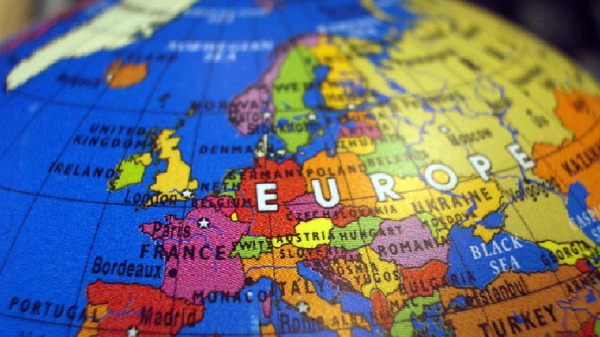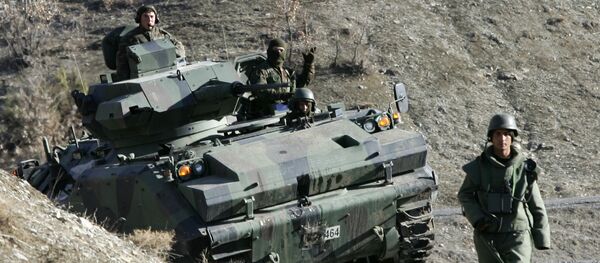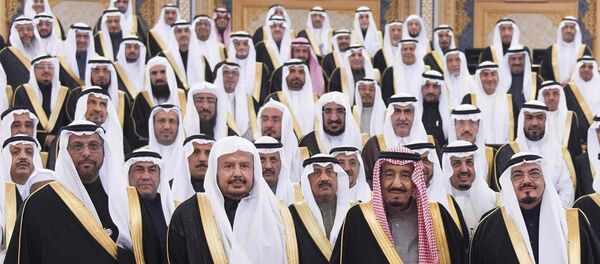The twenty-first century has brought the post-WWI order in the Middle East and North Africa into question; the US invasion of Iraq, NATO's intervention in Libya, the Arab Spring and the emergence of Daesh (ISIL/Islamic State) have balkanized the MENA region.
The Lebanese As-Safir daily underscores that the US political establishment has inherited a method of exploiting religious fanaticism. The method was first used by the Reagan administration to expel the USSR from Afghanistan in the 1980s.
In order to avoid repeating previous mistakes, Washington has revived its practice of using proxy forces of right-wing religious fanatics in regions, which the US political and financial establishment sought to "remap."
As-Safir points to the fact that four MENA states are currently being engulfed by war: Syria, Iraq, Libya, and Yemen. The Lebanese media outlet emphasizes that Washington's Gulf allies and radical Islamist proxies are re-drawing the map of the region playing directly into hands of the Pentagon's war planners.
The present Middle Eastern borders were determined under the Anglo-French Asia Minor (or the Sykes-Picot) Agreement in 1916. What if the Sykes-Picot order is no longer relevant, experts ask.
"It seems obvious when considering the complexity of the world as it now functions that the Westphalian model of state-centrism is no longer, if it ever was, descriptive," Richard Anderson Falk, an American professor emeritus of international law at Princeton University, writes on his personal blog.
At the same time the American academic warns that "questioning colonial boundaries would open a dangerous Pandora's Box filled to overflowing with nasty ethnic conflicts and contradictory territorial claims."
Amb. John R. Bolton, however, believes that we should deal with the reality on the ground.
"Today's reality is that Iraq and Syria as we have known them are gone. The Islamic State [Daesh] has carved out a new entity from the post-Ottoman Empire settlement, mobilizing Sunni opposition to the regime of President Bashar al-Assad and the Iran-dominated government of Iraq. Also emerging, after years of effort, is a de facto independent Kurdistan," the American lawyer and former US Ambassador to the UN noted in his November article for The New York Times.
"The new 'Sunni-stan' may not be Switzerland. This is not a democracy initiative, but cold power politics," Amb. Bolton remarked.
However, it seems Lebanon's As-Safir does not share the optimism of the American diplomat: by redrawing the map of the Middle East the US political establishment may facilitate the further rise of Islamic extremism.
Moreover, Europe and Western civilization may also fall victim to the Islamist offensive, it warns.
In this light, Russia's involvement in the Syrian crisis aimed at preserving the country's sovereignty and independence may provide the Middle Eastern nations with an opportunity to decide their future themselves.



